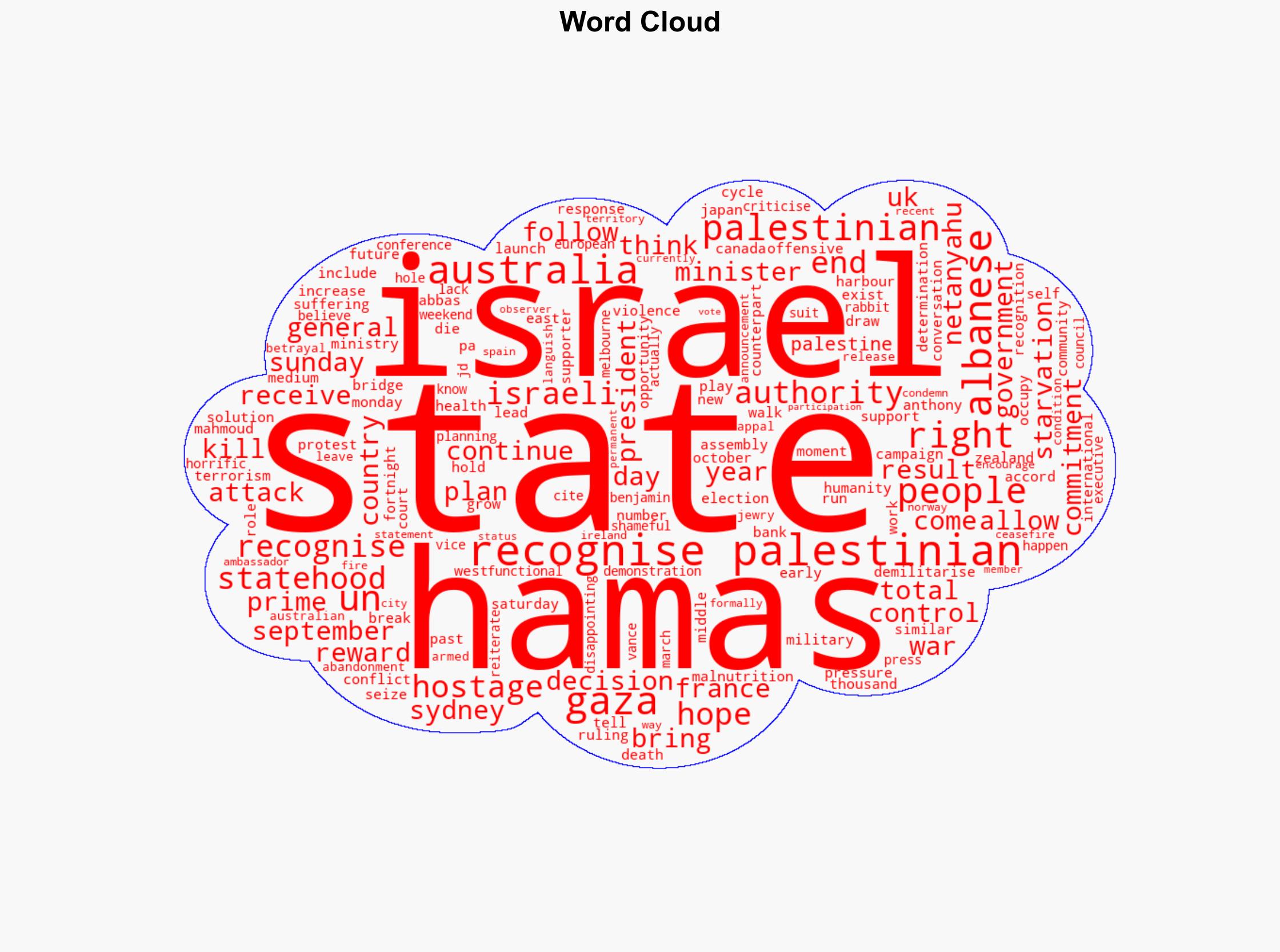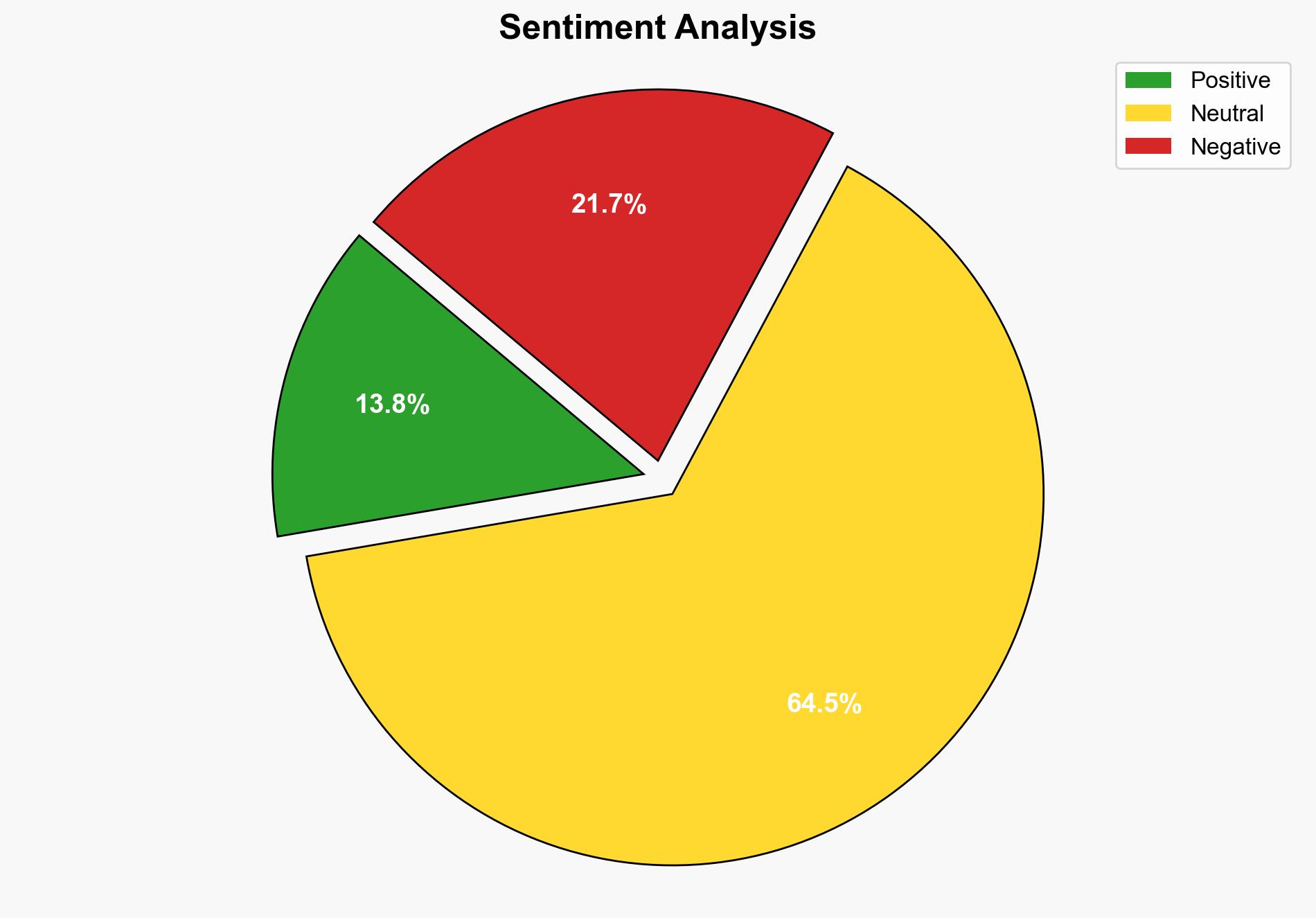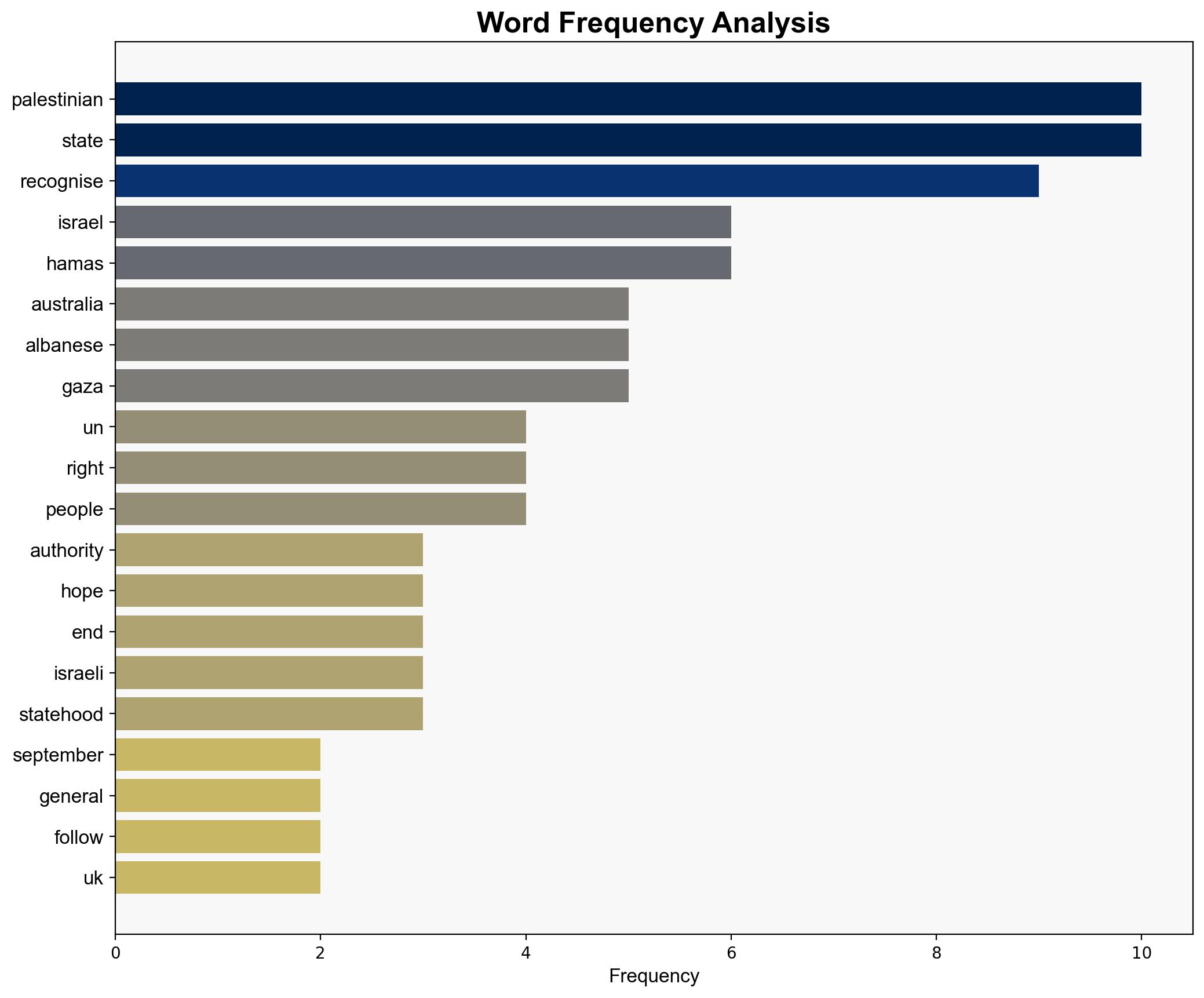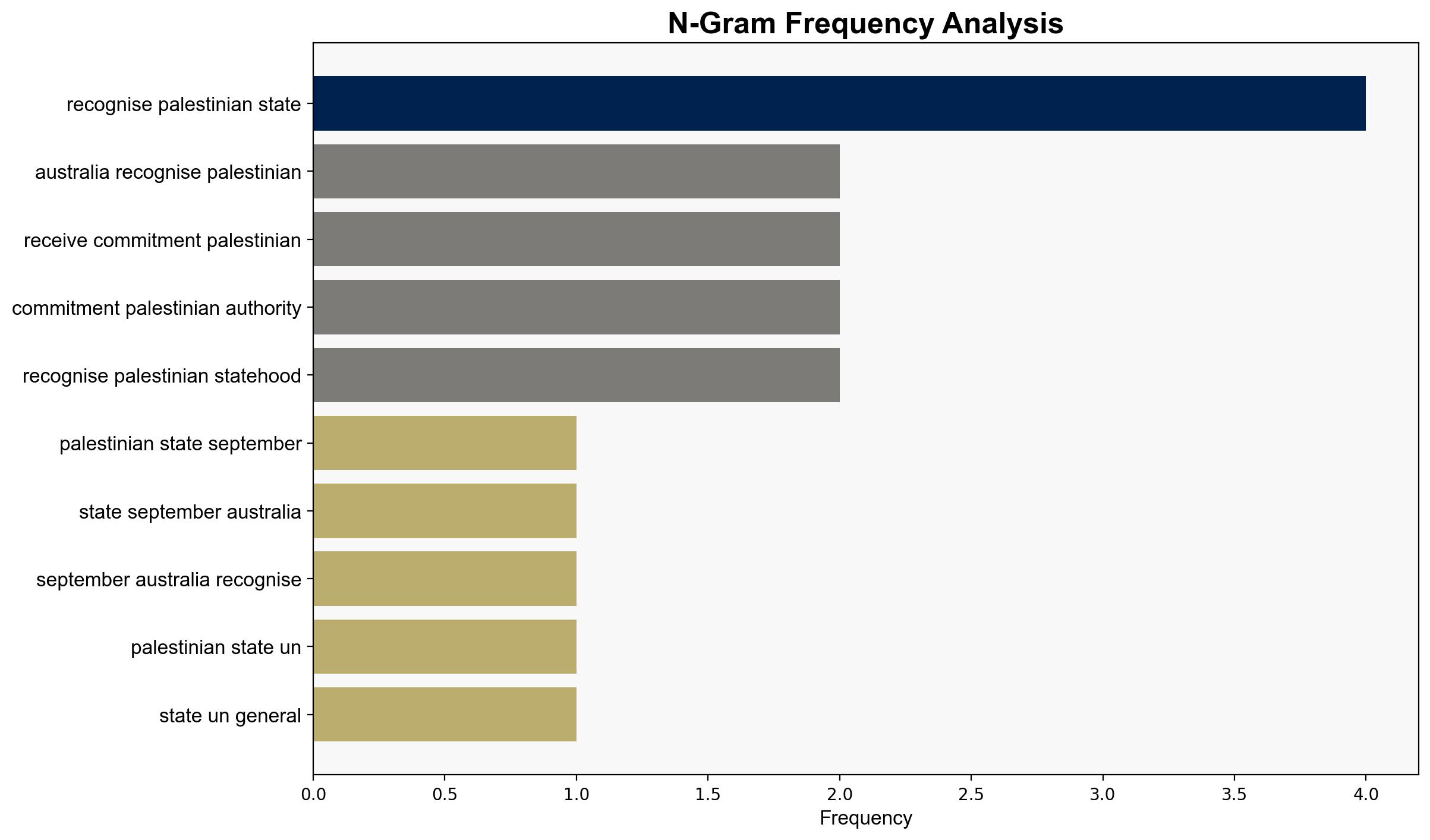Australia to recognise Palestinian state in September – BBC News
Published on: 2025-08-11
Intelligence Report: Australia to recognise Palestinian state in September – BBC News
1. BLUF (Bottom Line Up Front)
Australia’s decision to recognize the Palestinian state in September is a significant geopolitical move with potential ramifications for Middle East stability and international relations. The most supported hypothesis is that this decision is part of a broader international strategy to encourage a two-state solution and reduce regional tensions. Confidence level: Moderate. Recommended action: Monitor diplomatic responses and prepare for potential shifts in alliances and regional dynamics.
2. Competing Hypotheses
1. **Hypothesis 1**: Australia’s recognition of the Palestinian state is a strategic move to align with international efforts promoting a two-state solution, aiming to reduce conflict and enhance stability in the Middle East.
2. **Hypothesis 2**: The recognition is primarily a political maneuver to strengthen Australia’s diplomatic ties with countries supporting Palestinian statehood, potentially at the expense of its relationship with Israel.
Using ACH 2.0, Hypothesis 1 is better supported due to Australia’s historical stance on supporting peace processes and the alignment with similar moves by other Western countries. Hypothesis 2, while plausible, lacks substantial evidence of a shift in Australia’s broader foreign policy strategy.
3. Key Assumptions and Red Flags
– **Assumptions**: It is assumed that the Palestinian Authority will adhere to commitments such as demilitarization and holding elections, which may not materialize. The assumption that recognition will lead to reduced violence is also uncertain.
– **Red Flags**: The potential for increased tensions with Israel and domestic backlash from Australian Jewish communities. The lack of a detailed plan on how recognition will facilitate peace raises concerns.
4. Implications and Strategic Risks
– **Geopolitical Risks**: Potential deterioration of Australia-Israel relations and impact on trade and intelligence-sharing agreements.
– **Regional Stability**: The move could either catalyze peace efforts or exacerbate tensions if perceived as rewarding terrorism.
– **Domestic Impact**: Possible increase in domestic protests and political polarization within Australia.
5. Recommendations and Outlook
- Engage in diplomatic dialogue with Israel to mitigate potential fallout and reassure of continued support for Israel’s security.
- Collaborate with international partners to ensure the Palestinian Authority’s commitments are upheld.
- Scenario Projections:
- Best Case: Recognition leads to renewed peace talks and reduced violence.
- Worst Case: Escalation of conflict and strained diplomatic relations with Israel.
- Most Likely: Short-term diplomatic tensions with potential for long-term positive impact on peace efforts.
6. Key Individuals and Entities
– Anthony Albanese
– Mahmoud Abbas
– Benjamin Netanyahu
– JD Vance
7. Thematic Tags
national security threats, geopolitical strategy, Middle East peace process, diplomatic relations





